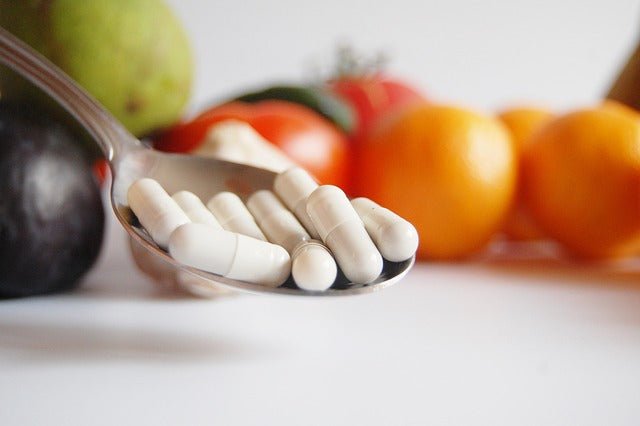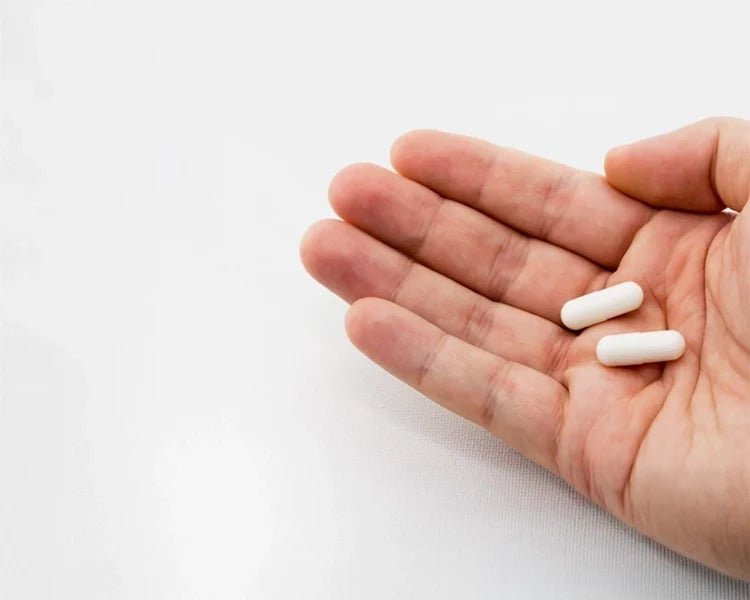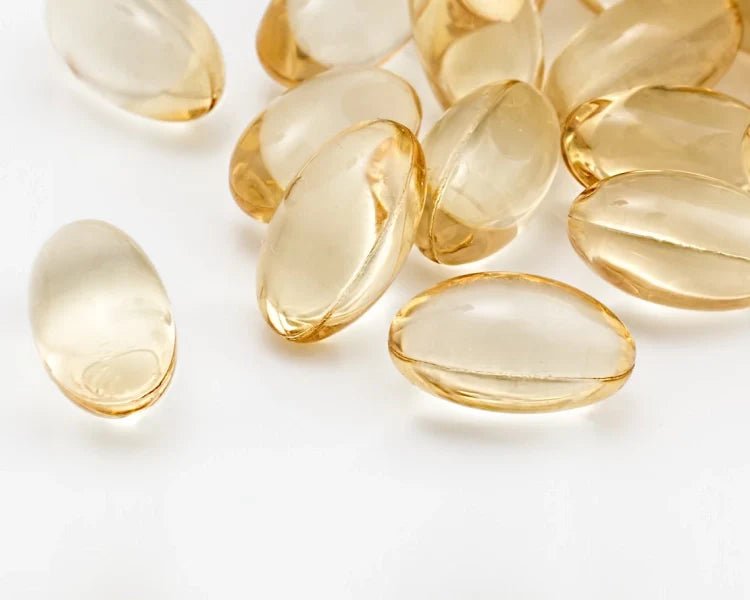Education
Painkillers and health
Year by year, sales statistics of painkillers increase, according to many of them, in recent years by up to 250%! Pain is an inherent part of the human experience, and pain medications are often the first choice for relieving symptoms. However, their excessive and regular use may have adverse consequences for human health. It is worth understanding the different types of painkillers, their potential side effects and the causes of pain in order to approach the topic responsibly. Types of Painkillers: NSAIDs (non-steroidal anti-inflammatory drugs): Examples are ibuprofen, diclofenac. They have anti-inflammatory and analgesic effects by inhibiting enzymes responsible for inflammation. They may cause gastrointestinal problems. SIDE EFFECTS: May cause gastrointestinal problems, ulceration, bleeding. Paracetamol: Has an analgesic and antipyretic effect. Its excess can damage the liver. SIDE EFFECTS: Too high a dose or given for too long may damage the liver. Opioids: Strong painkillers such as morphine or oxycodone. They can lead to addiction and have a depressing effect on the respiratory system. SIDE EFFECTS: Risk of addiction, respiratory depression, drowsiness. DON'T IGNORE THE PAIN! Pain can be a signal from the body that something is wrong. Pain symptoms in the head, joints, spine or abdomen may be caused by various reasons, such as injuries, infections, chronic diseases or improper habits. Ignoring pain can worsen your condition and delay proper diagnosis. DO YOU EXPERIENCE PAIN REGULARLY? Consult a doctor - pain is intense, frequent or persistent, it is worth consulting a doctor to rule out serious health problems. ATTENTION! Don't overuse painkillers: Use medications only as directed by your doctor or as directed on the package. Adopt healthy habits - a healthy diet, regular physical activity and avoiding stress can help reduce pain; in many cases, recurrent weakness, nausea or headaches result from DEHYDRATION or lack of adequate food during the day. Remember that a healthy approach to pain involves recognizing its cause, not just masking the symptoms with painkillers. When in doubt, it is always a good idea to consult your doctor to ensure that you receive appropriate medical care. Mata Wcześniak Bibliography: American Heart Association. (2020). Nonsteroidal Anti-Inflammatory Drugs (NSAIDs). National Institute on Drug Abuse. (2020). Opioids. Mayo Clinic. (2021). Pain Medications: Prescription pain relievers, OTC pain relievers and topical products. Harvard Health Publishing. (2019). The hazards of too much acetaminophen. Mayo Clinic. (2021). Pain Management: Pain basics. Harvard Health Publishing. (2020). When Pain Relievers Cause More Headaches.
Learn moreSleep disorders and their impact on the course and control of diabetes
Diabetes is a very common disease nowadays. It is called a civilization disease or a non-communicable epidemic of the 21st century. About 3 million people suffer from the disease in Poland, and approximately 440 million in the world, which translates into 1.6 million deaths annually due to it. The disease increases mortality but also deteriorates the quality of life. Diabetes that is improperly treated and poorly controlled causes very serious complications, mainly cardiac ones - more frequent heart attacks, strokes, atherosclerosis of arterial vessels, and, as a consequence of these changes, an increase in the number of lower limb amputations, cases of kidney failure, and diabetic retinopathy. Peripheral polyneuropathy is a very painful symptom, affecting mainly the feet and significantly worsening the patient's quality of life. Currently, an individual approach to a patient with diabetes is emphasized, because each case is different. Each patient struggles with diabetes at different stages and degrees of advancement, uses different antidiabetic drugs or insulin therapy, has a different lifestyle, work pattern, ability to perform physical activity or follow an appropriate diet, which is so important in diabetes. Despite increasingly better treatment methods, modern drugs and insulins, new insulin pumps and continuous glucose monitoring (CGM) systems, good diabetes control and avoiding hyper- or hypoglycemia are still influenced by many elements of the patient's daily life. Regularity, repetition, consistency of eating, working and resting times, avoiding excessive stress, worrying, living in a hurry, as well as the ability to get good and healthy sleep are very important. The latest diabetes recommendations of the PTD emphasize the role of sleep, its duration and quality on the course of diabetes. Sleep disorders affect diabetes in two ways. On the one hand, they worsen its balance, causing morning hyperglycemia, increased insulin resistance, and certain neurological disorders that persist during the day regarding concentration, memory, and emotion. On the other hand, diabetes, especially insulin therapy or traditional, older drugs such as sulfonylurea derivatives, generate glycemic disturbances at night and impair the quality of sleep. Sleep disorders in patients with diabetes and their adverse impact on health parameters The journal Diabetologia conducted a meta-analysis on the incidence of sleep disorders in type 2 diabetes and their impact on factors such as glycemic control, micro and macrovascular complications, depression, mortality and quality of life. The authors, based on the available literature in the PubMed database, asked the extent to which the treatment of sleep disorders in patients with type 2 diabetes can improve the mentioned health factors. The review included both observational and experimental studies. The results showed that insomnia (39%), obstructive sleep apnea (55-86%), and restless legs syndrome (8-45%) occurred more often than in the general population without diabetes. Moreover, it has been shown that sleep disorders have a significantly negative impact on glycemic control and increase the percentage of glycated hemoglobin HbA1c. The reason for the increase in glycemia after a bad night's sleep is believed to be an increase in the amount of stress hormones, mainly cortisol, which causes metabolic disorders, insulin resistance, slower metabolism, difficulty maintaining optimal body weight, and additional snacking at night or in the morning. Repeated sleepless nights increase your cardiovascular risk. It has been proven that people who sleep little have higher levels of CRP (acute phase protein), which causes a greater risk of inflammation, weakened immunity, a greater risk of obesity, diabetes, hypertension, depression, and cancer. Already the first sleepless night causes memory and concentration disorders, weakened reflexes and the ability to react, anticipate, make decisions and various emotional disorders. Each additional one increases the risk and intensity of the above-mentioned disorders. Such a person may have impaired driving skills, limited assessment of the consequences of actions and reduced foresight, which may contribute to an increased risk of road accidents or accidents at work. The body returns to full balance only after three consecutive nights of sleep. Treating sleep disorders may therefore play an important role in preventing the progression of diabetes. Conventional therapies such as weight loss, education, and cognitive behavioral therapy appear to be effective in improving sleep and health outcomes in patients with diabetes. Sleeping medications should only be used in more severe cases and for short periods of time. For this purpose, you can use herbal medicines that have a relaxing and sleep-inducing effect, as well as melatonin. In conclusion, it can be stated that because the treatment of sleep disorders can prevent deterioration of diabetes control, sleep disorders should be recognized and treated in patients with diabetes in order to ultimately improve health and quality of life. Diabetes and drug therapy as factors worsening sleep quality A diabetic patient using insulin therapy, especially intensive 3-4 injections a day, and also treated with an insulin pump or older generation drugs, such as sulfonylurea derivatives, is more exposed to fluctuations in glycemia at night, which may manifest as: Hyperglycemia, i.e. too high blood glucose level >180 mg, with symptoms of difficulty falling asleep, more frequent urination - nocturia and large amounts of urine excreted (polyuria), Hypoglycemia, i.e. too low glycemia level <70 mg/dl. It may cause waking up at night or waking up with heavy sweats, deterioration of sleep quality, problems with waking up, feeling tired, dull, and irritable during the day. To avoid these problems, you should choose the appropriate meal for dinner, especially the amount of carbohydrates in the meal, and adjust the appropriate dose of insulin depending on the glycemia before the meal, e.g. around 6:00 p.m., and basal insulin, usually administered around 10:00 p.m. Currently, with advanced devices for measuring CGM (Continuous glucose monitoring system), new insulin pumps with a hybrid system and closed loop, significant nocturnal hypo- or hyperglycemia is becoming less common, and patients have a better quality of life and avoid dangerous complications of diabetes. . To ensure comfortable sleep, remember the basic rules, such as the appropriate temperature in the bedroom (about 18 degrees Celsius), airing the room, properly selecting a sleeping pillow and mattress, and using headbands or earplugs. In the evening, it is important to turn off multimedia and avoid intense exercise late at night. It is worth remembering about fixed sleep times and avoiding shift work at night. To sum up, detecting and treating sleep disorders is not usually part of standard patient care in a diabetes office, which is often due to the time limit of such a visit, but drawing attention to this problem in the doctor's office and ensuring the patient's good sleep contributes significantly to improving diabetes control. , and sometimes to prevent it and reduce the risk of other diseases and health problems mentioned in this article. Krzysztof Chabros Diabetologist specialist Literature: Urszula Cieślik-Guerra, Sleep disorders as a risk factor for type 2 diabetes, " Fam Med Prim Care Rev11.3 (2009), pp. 574-576. Clinical recommendations for the management of patients with diabetes 2022. Position of the Polish Diabetes Association. Current Topics in Diabetes, 2022;2 (1) p. 26.
Learn moreMedicine or dietary supplement? What to choose?
Mr. Magister, I would like some magnesium "in the form of a MEDICINE". A conversation at the pharmacy window often begins with this phrase. Then the patient begins a long analysis of the composition and packaging to be 100% sure that there is no inscription "dietary supplement" on it. The pharmacist often avoids talking about this topic, but should still be prepared to talk to the patient. The problem of distinguishing and comparing drugs and dietary supplements is quite difficult. Both product categories are placed on adjacent stands and have similar, and often the same, composition. So what is the mystery and why do patients try so hard to buy a drug and not a dietary supplement? Let's start with individual definitions. A medicinal product is a substance or mixture of substances presented as having properties for the prevention or treatment of diseases occurring in humans or animals or administered for the purpose of making a diagnosis or for the purpose of restoring, improving or modifying the physiological functions of the body through pharmacological, immunological or metabolic action. (Pharmaceutical Law of September 6, 2001, Chapter 1 Art.2 Point 32.) The definition contained in the Act clearly states that a drug (medicinal product) prevents, cures, improves or modifies the physiological functions of the body. Whereas: Dietary supplement - a food intended to supplement a normal diet, being a concentrated source of vitamins or minerals or other substances having a nutritional or other physiological effect, single or combined, placed on the market in a form enabling dosing, in the form of: capsules, tablets, dragees and in other similar forms, sachets with powder, ampoules with liquid, dropper bottles and other similar forms of liquids and powders intended for consumption in small, measured unit quantities, excluding products having the properties of a medicinal product within the meaning of the provisions of pharmaceutical law. (UST AWA of August 25, 2006 on food and nutrition safety, SECTION I, Art. 3 point 3, ppk39) According to this definition, a dietary supplement is a food that is intended to supplement the normal diet with vitamins, minerals and "other" substances. At first glance you can see the difference, but is it really? Looking at the last part of the definition: excluding products with the properties of a medicinal product within the meaning of pharmaceutical law, we reach the point where it is impossible to distinguish a dietary supplement from a drug. What is the difference between a medicinal product containing 2000 IU of vitamin D3 in the form of cholecalciferol and a dietary supplement containing exactly the same in the same form, but in capsules? There are several differences between a drug and a dietary supplement, but neither side achieves a clear competitive advantage. The first issue concerns legal aspects. Various institutions register both product groups. Drug registration is handled by URL (Drug Registration Office). It does this on the basis of many tests and certificates. However, the Chief Pharmaceutical Inspector is responsible for marketing authorization in the country. Dietary supplements are also officially registered by the Chief Sanitary Inspector (GIS) on the basis of an application submitted by the entrepreneur. Therefore, it is not the law that supplements are not subject to control, because the GIS may refuse to register or, in case of uncertainty, may ask for an opinion from the URL. The registration procedure for dietary supplements is shorter and easier to carry out, which is why many drug manufacturers register their next products in this category. The second thing is the doses of individual ingredients. Based on the dose definitions, substances in a drug have a curative or preventive effect, while in a supplement they have a nutritional effect. No less surprising is the fact of the existence of vitamin C - a drug in doses of 200 and 500 mg in the presence of the same vitamin - a supplement in doses of 1000 and 2000 mg. Questions arise about the body's actual needs, the dose that produces a therapeutic or nutritional effect, and the dose that is too high to be safe. Another aspect concerns the origin of the ingredients contained in the products. Due to high standardization requirements and the purity of substances, synthetic substances obtained through chemical reactions are often used in medicinal products. Dietary supplements often contain ingredients of natural origin, which seems to be a healthier solution and more adapted to the living organism. They also contain plant ingredients and their extracts. Sometimes dietary supplements contain plant ingredients that are not found in our climate or in Europe, but which have a proven positive effect on health and fitness. Further differences concern promotion and advertising. No elements of the packaging, names or advertising of supplements may suggest medicinal properties. Each package must also have the description "DIETARY SUPPLEMENT". Every day we are attacked by advertisements for medicines and supplements, so much so that it is difficult to know what and whether it is worth buying to support our health. We consume large amounts of medicines and dietary supplements every day. This is due to the fact that the availability of supplements is very high, advertising in the media is intense, and society is taught to respond to changes in its health by purchasing new preparations. Supplements are used to improve the condition of hair, nails, skin, eyes, joints, etc. We supplement vitamins, minerals and herbs using multi-ingredient products. Therefore, it is important to know the exact composition of a given preparation. There is a high probability that several preparations will contain the same ingredients and by taking a whole range of products we will provide too high doses of the mentioned vitamins or minerals. It is also worth remembering that the most important source of supplementation is food, i.e. what we eat. So how should you approach the use of supplements to make it safe? Let us remember that choosing a drug as a safe form will not always meet the nutritional and health needs of the body. On the other hand, not all supplement manufacturers meet the quality standards of their products. Taking this summary into account, you should follow a few rules to achieve the appropriate nutritional effect while maintaining safety. Here are the rules worth following Let's choose high-end supplements - there are several leading companies on the market. Some of them can be found on our website. Companies with extensive experience, certified products and production standards such as GMP, ISO, etc. The most advantageous offers are provided by companies that grow medicinal herbs themselves and produce vitamin and mineral ingredients instead of mass purchases from suppliers. Let's use only those substances that we need - it's best to discuss the selection of ingredients with a specialist. Do not use supplements recommended by third parties. The appropriate selection of supplements in oncological diseases and post-oncological therapies is extremely important. Many ingredients have the ability to stimulate excessive cell growth. If possible, use single-component or multi-component preparations. We will then avoid the possibility of duplicating doses of the same substance. Let's ask a specialist when and how to take a given product. Often, the absorption of the substance and the effect of the entire preparation depend on the time of day or the meal we take. In light of these assumptions, I believe that the use of dietary supplements can be safe and bring good results. By choosing only medicinal products, we will not achieve long-term effects and visible results. A well-balanced and well-thought-out combination of medicine and dietary supplement can achieve very good results. Let's take the medicines that are necessary for us, let's take the dietary supplements that we need, but let's not forget about proper nutritious food, including fruit and vegetables. Krzysztof Juszkiewicz
Learn more





